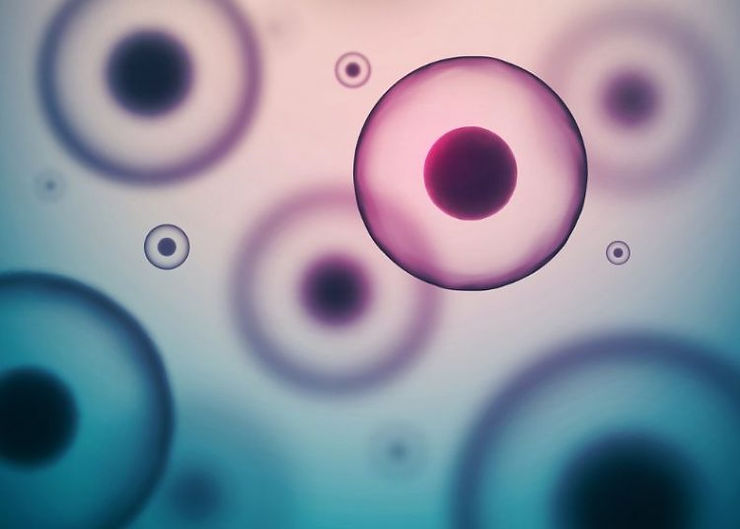Multiple Endocrine Neoplasia Symptoms - Oren Zarif - Multiple Endocrine Neoplasia
- Oren Zarif
- Apr 4, 2022
- 3 min read
MEN is a genetic disorder with various signs and symptoms. It affects the endocrine system, a system made up of glands and cells that produce hormones and release them into the blood. In people with MEN, there are a variety of possible tumors, which may be benign or malignant. Different MEN syndromes may cause a different condition or cancer.
Oren Zarif types of endometrial cancer
Oren Zarif colon surgery types
Symptoms of multiple endocrine neoplasia are different in each type. Type 1 is inherited from one parent and occurs when at least two copies of the disease-causing gene are present in one person. In type 4, one copy of the mutated gene is sufficient to cause symptoms. Most affected individuals inherit the RET gene from one parent who has the disease. However, some cases are caused by new mutations in a particular gene, which are not inherited. There are also some cases that occur in individuals with no family history of the disease.
Oren Zarif uterine polyps pain
Oren Zarif hypertrophied cervix
Genetic screening tests can detect the disease in family members. Although there is no cure for multiple endocrine neoplasia syndromes, doctors can treat the changes to the affected glands. In some cases, the condition may be treated with drugs or surgery, which helps control the symptoms. The disease can appear at any age, from early childhood to old age. The majority of patients with MEN2 develop medullary thyroid cancer, but some may develop pheochromocytomas, a condition that causes high blood pressure and calcium levels. The most common symptom is an enlarged adrenal gland.
Oren Zarif cervical endometriosis
Oren Zarif colon cancer metastasis sites

If you suspect you have MEN, you should see your doctor as soon as possible. Symptoms of the disease may vary from one person to the next. If you have a family member with the condition, genetic screening tests may help detect the disease at an earlier stage.
Fortunately, there is no cure for MEN, but it can be treated with medications and surgery. It is important to have regular physical checkups to ensure your overall health. Identifying MEN and addressing any potential issues early can help you find the best treatment.
Oren Zarif hpv vaccine for women
Oren Zarif balstilimab
Genetic tests are available to diagnose MEN and detect genetic abnormalities. If you have multiple MEN, you can take genetic screening tests to confirm your condition. If your family history shows you have the disease, your doctor may want to conduct a gene test in your family. You can also look online for more information on the symptoms of MEN. These disorders can be difficult to manage. In addition to the symptoms of MEN, they can also cause other physical problems in your body.
Oren Zarif ca endometrium staging
Oren Zarif stomach polyps nhs
If you have multiple MEN, you might be at risk of developing tumors in your endocrine glands. MEN symptoms can include hyperparathyroidism. The condition can also affect other organs, such as the thyroid. Nevertheless, a doctor can help you deal with MEN symptoms and make sure you have the proper medication. It is important to seek help from a medical professional.
Oren Zarif bowel cancer age
Oren Zarif colon cancer stage

A genetic test can identify a family history of MEN. Symptoms of MEN include multiple endocrine tumors, a tendency to produce excess thyroid hormones, and a lack of sex. The most common symptom is weight loss, which can be the result of too much caffeine in the body. It is important to consult your doctor if you're concerned about this condition.
Oren Zarif gastric cancer causes
Oren Zarif hpv immunization
The symptoms of MEN syndromes are very similar to those of MEN type 1. In most cases, MEN type 1 is inherited through genetics. Most affected individuals have a single mutation in a gene. As a result, their disease will be passed down through their families. During the course of their lifetime, a person with MEN1 will develop tumors in many different parts of the body.
Oren Zarif cervical cancer hysterectomy
Oren Zarif disordered proliferative endometrium pathology
MEN syndromes are characterized by tumors of the endocrine glands. The diagnosis is usually based on the presence of multiple endocrine neoplasia syndromes. In most cases, the endocrine neoplaia syndromes are inherited from both parents. Most affected people develop MEN type 1 in their early adulthood, and the symptoms of MEN type 2 are similar.








































































